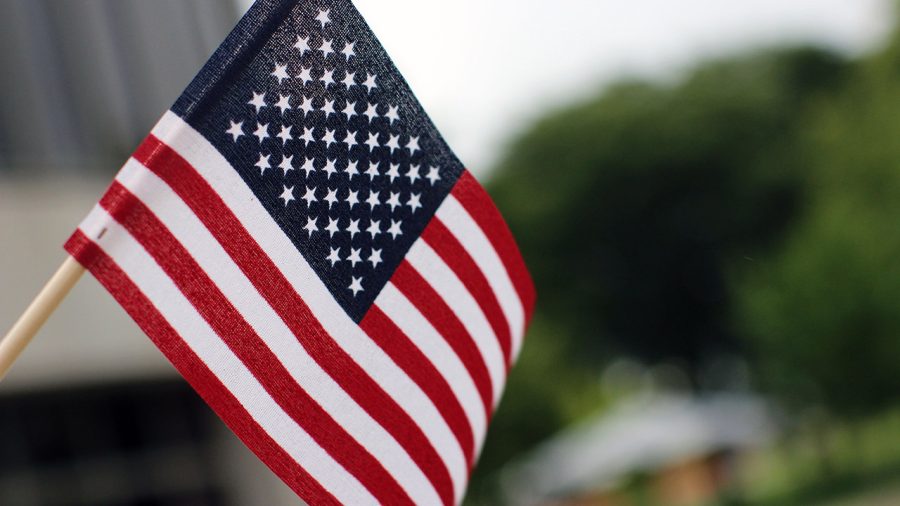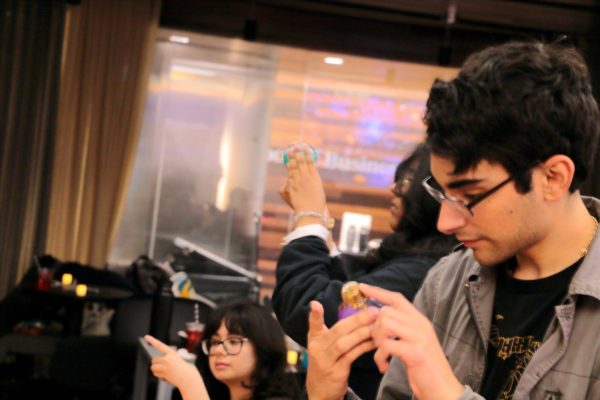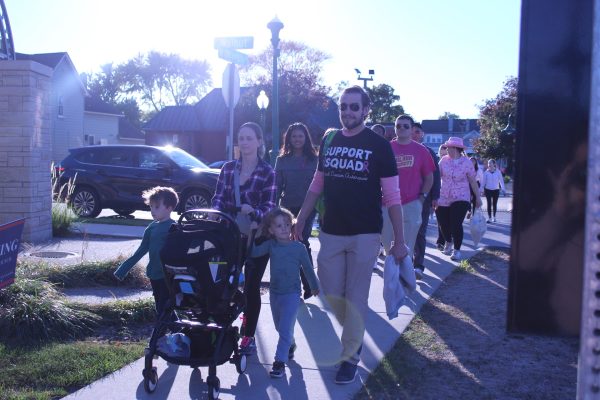OU receives gold seal for voter engagement efforts
On Nov. 8, 2021 Oakland University was dubbed a gold seal campus from the 2021 ALL IN Challenge for student voter engagement in the 2020 presidential election.
The ALL IN Campus Democracy Challenge is a national awards program that aims to recognize colleges and universities for their efforts to increase student voter rates. The gold seal award is presented to participating institutions with a voter percentage rate of 70-79% or higher.
For the 2020 presidential election, OU achieved a student voter rate of 73.4% — roughly a 16% increase from student voter rates during the 2016 presidential election.
David Dulio, director of the OU Center for Civic Engagement (CCE) and professor of political science, feels the award demonstrates students’ drive to get involved and the administration’s support towards engagement efforts.
“It’s a credit to the students because they are taking advantage of the opportunities they have — whether it’s election engagement opportunities that we offer, Student Congress offers, or just the simple act of participating in the democratic process. So it’s a testament to the students and to the atmosphere that we have that permits us to offer those kinds of opportunities,” Dulio said.
Dulio is happy to do what is possible to provide the tools and resources for students to get registered to vote and turn out should they so choose. He emphasizes the importance of voting, specifically in the college-age demographic, by noting it is how our voices are heard.
“I often hear young people say that they don’t believe candidates for office, elected officials, pay attention to what their concerns are,” Dulio said.
“The issues that are maybe foremost in their minds are not the ones that receive the most attention from candidates or elected officials compared to, say, older Americans. There’s a reason for that. It’s because older Americans vote at higher rates than young people. There’s a way to change that and that’s to show your power at the polls.”
CCE, along with members of OU Student Congress (OUSC), hosted several student voter engagement events throughout the course of the academic year in order to keep students involved with the election process.
These events included holding a presidential primary caucus — a student event that mimicked the Iowa caucus — hosting speaker and expert on Macomb County presidential-level politics Dr. Stan Greenberg, and holding discussions featuring OU political science faculty members.
Jeremy Johnson, OU Student Congress’ speaker of the legislature, was excited about OU’s achievement and personally calculated that OU ranked roughly 4th in the state in terms of the student voting percentage in 2020. Johnson credits the efforts of both OUSC and CCE in helping students get registered as well as the contentiousness of the latest election in driving student-voter participation.
Although he was excited about OU receiving the gold seal, Johnson noted the work is far from over when it comes to voter engagement and accessibility. With the 2022 midterm elections approaching, Johnson has future plans to keep students politically motivated.
Johnson’s future plans for student voter engagement transcend individual efforts and focus on institutional efforts on the part of OU administration. He hopes that the administration will implement university-wide policies in order to supplement the efforts of campus organizations in terms of increasing voter accessibility.
“When we’re pushing for more institutionalized efforts that aren’t just simple events or posters on a wall but they’re university-wide programs that can actually get people involved, I think there’s definitely a substantive difference,” Johnson said.
His goals include pushing an institution-wide policy of having no scheduled classes on election day — a policy that he proposed to administration with the help of OUSC — creating a page on OU’s website dedicated to voter information, and implementing departmental voter-engagement policies.
“To me, making or having OU be an institution that produces more leaders, more active citizens means getting more people to vote. If we want people, after they graduate or while they’re here, to be leaders in the community then I think that is synonymous with getting people out to the polls and getting people to make their voice heard as an individual and as a leader in their community,” Johnson said.
“So, if OU wants to claim to be an institution that is producing more leaders that are going to impact the world, I think that voting naturally has to be a part of that.”
For more information on voting and voter registration, students can visit: www.michigan.gov/vote






Jerome • Jan 20, 2022 at 8:58 AM
Voting ought not be a right and rather a privilege
The uninformed, unengaged, and uninvested should not have the ability to vote but at a minimum not encouraged to vote under the current system.